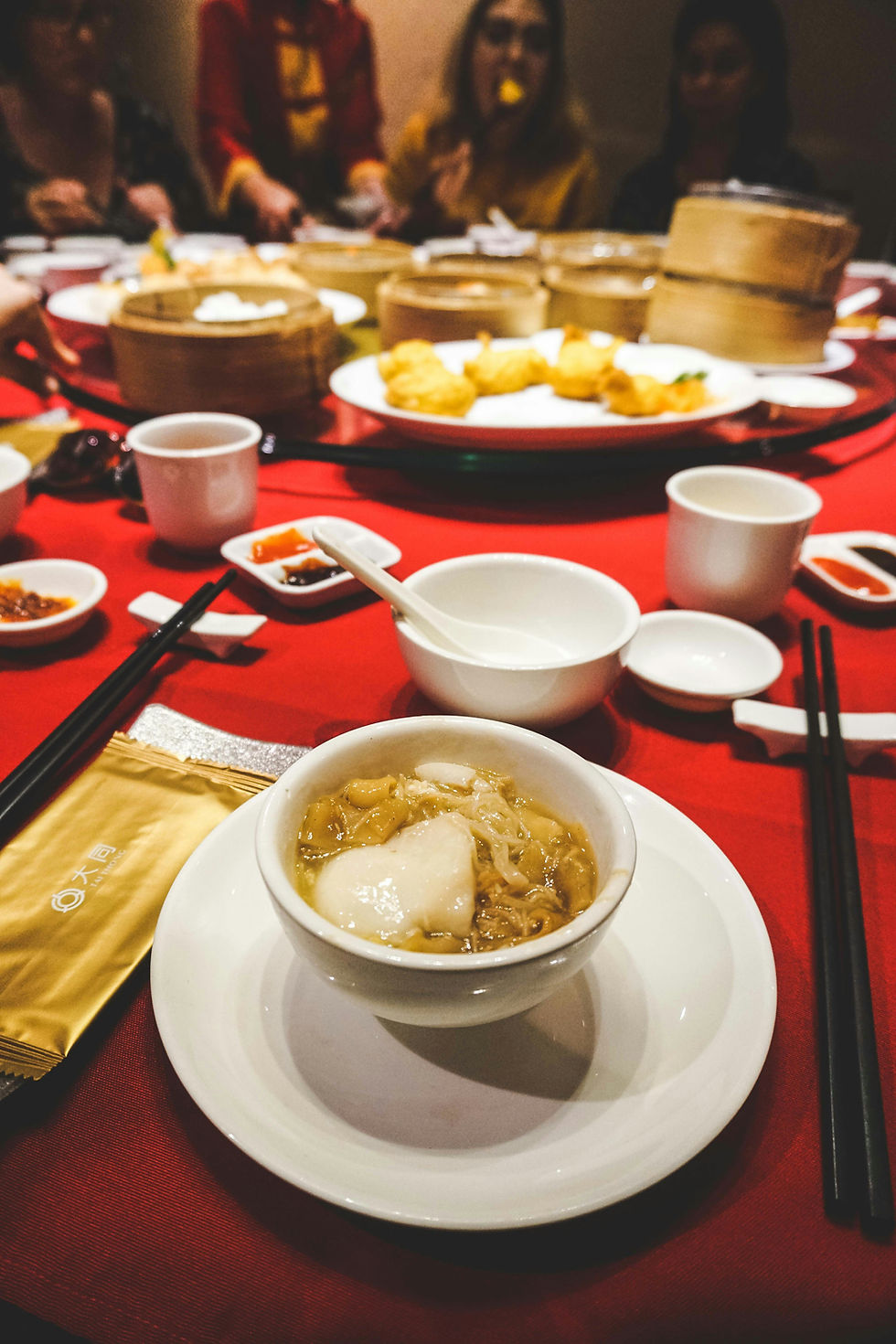Social and Cultural Adjustments in China: A Guide for Foreign Teachers
- Foreign Teacher

- Jul 27, 2025
- 4 min read
Adapting to social and cultural adjustments in China may seem daunting at first, but with awareness and patience, you can thrive. From understanding etiquette and communication styles to forging meaningful relationships—this guide provides practical advice for foreign teachers settling into life in China.

Social and Cultural Adjustments in China: Etiquette and Norms
Navigating daily customs will make a big difference in how you're perceived and how comfortable you feel. Here are essential etiquette points:
Greetings
Handshake - A light, respectful handshake is the norm in professional settings—less firm than in many Western countries.
Titles - Always use titles and surnames (e.g., “Mr Wang” or “Teacher Li”) to show respect.
Nods and Bows - A slight bow or nod is appreciated, especially when greeting elders.
Respect for Hierarchy
Confucian values remain influential in China. It’s important to show deference to superiors and elders, both at work and socially. Demonstrating respect for hierarchy will serve you well.
Personal Space
China’s cities are densely populated, and personal space is minimal. Standing close in queues or on transport isn’t considered rudeness—just part of everyday life.
Gift Giving and Table Manners
Gift Giving
In social or formal contexts, gift‑giving is common. Consider these points:
Presentation - Offer gifts with both hands and modestly decline once before accepting.
Wrapping - Use red or gold—avoid white or black, which are linked to funerals.
Avoid unsuitable gifts, such as clocks (symbolise death) or sharp items (imply cutting ties).
Table Manners
Eating together is social. Follow these tips:
Chopstick Etiquette - Don’t stick chopsticks upright in your rice bowl—it resembles ritual incense. Never point with them.
Sharing Food - Meals are served family‑style. Sample everything and offer dishes to others.
Toasting - When toasting, hold your glass slightly lower than someone senior and always reciprocate.
Saving Face (Mianzi)
“Mianzi” means maintaining dignity and avoiding embarrassment—for both yourself and others. Avoid public criticism or confrontation. Instead:
Offer feedback privately and diplomatically.
Praise in group settings, but address issues one‑on‑one.
Understanding this concept is key for fostering respect and harmony.
Building Relationships: Guanxi and Social Ties
Guanxi (Relationships)
Guanxi involves nurturing relationships and trust over time. It often entails mutual favours and shared experiences. Establishing strong guanxi with colleagues, neighbours or local vendors deepens your sense of belonging and enhances daily life.
Making Friends
Making local friends requires patience. Good avenues include:
Workplace Relations
Cultivate humility and a desire to learn. Socialising after hours—such as dinner or karaoke—can help strengthen bonds with colleagues.
Adapting to Chinese Communication Styles
Indirect Communication
Chinese communication tends to be indirect. A “maybe” or “I’ll think about it” might mean no. Learn to read between the lines and patiently interpret nuance.
Body Language
Non-verbal cues are crucial. A polite nod or smile might signal polite refusal. Observing tone and posture is just as important as listening to words.
Modesty and Humility
When praised, modesty is the preferred response—it’s considered impolite to accept compliments too readily.
Tone and Volume
Public spaces may feel loud and bustling, but this isn’t a sign of conflict. In professional settings, maintain calmness and composure.
Expat and Local Communities
Expat Communities
Major cities in China have vibrant expat scenes. To connect:
Join WeChat expat groups
Attend meet‑ups via Internations
Engage with community centres or volunteer groups
Local Communities
Engaging with local traditions enriches your experience:
Participate in tai chi in parks
Learn calligraphy or join mahjong gatherings
Celebrate traditional festivals alongside locals
Festivals and Holidays: Embracing Culture
Participating in cultural events helps you bond with locals and understand traditions better:
Chinese New Year (Spring Festival)A 15‑day celebration featuring family reunions, fireworks, and red-hongbao.
Mid‑Autumn FestivalA time to share mooncakes and appreciate the full moon—usually in September or October.
Dragon Boat FestivalHeld in June, with boat races and eating sticky rice dumplings (zongzi).
National Day / Golden WeekFrom 1 October, the week is marked by travel, parades and patriotic events.
Understanding these events immerses you in Chinese culture and provides great opportunities to socialise.
Overcoming Culture Shock
Adapting isn’t always easy, but these strategies can help:
Be Patient with Yourself - Culture shock is normal—expect ups and downs.
Stay Open-Minded - Embrace new customs with curiosity rather than judgement.
Find Support - Build a network of friends—both expat and local.
Blend Familiarity and Discovery - Keep routines from home—like a favourite podcast or a weekend dish—while exploring new environments.
Summary Tips for Social and Cultural Adjustments
Adjustment Area | Key Tips |
Etiquette | Use titles, light handshakes, respectful gestures |
Gift‑Giving | Offer gifts with both hands; avoid taboo items |
Table Manners | Follow communal dining practices and polite toasting |
Guanxi & Socialising | Invest in relationships, join communities, show humility |
Communication | Listen for implied meanings and respond modestly |
Festival Participation | Join traditional celebrations for cultural connection |
Coping Mechanisms | Be patient, seek support, and balance home comforts with cultural exploration |
Understanding social and cultural adjustments in China requires time, but the effort pays off. By observing norms, cultivating relationships, participating in customs, and staying open-minded, you’ll not only fit in—you’ll flourish. Your journey as a foreign teacher can be deeply rewarding both personally and professionally.











Comments